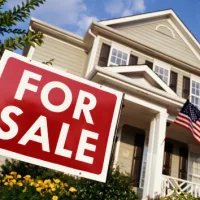
nycshooter/iStockBy ROSA SANCHEZ, ABC News
(NEW YORK) — There’s nothing like a double crisis to shake one of New York City’s most reliable markets to its core.
Since March — when COVID-19 took over the nation — the city’s real estate market has been on a steep decline. And now, as protests over George Floyd’s death have turned into looting and violence, things seem even more uncertain.
“For retailers it’s the worst because people are breaking into all sorts of stores and offices, restaurants, shops, banks. That has to stop before people even begin to look for spaces to buy again,” said Chris Okada, the founder and CEO of real estate firm Okada & Company. “All the businesses that are already struggling and social distancing … now they have to board up because every day they’re dealing with protesters. Who’s gonna want to buy in Soho right now?”
Okada & Company’s vice president, Francis Leung, thinks the destruction caused by the riots does not reflect the positive message of Black Lives Matter and is creating more grief for everyone.
“It’s a crisis on top of a crisis,” he told ABC News.
Just a few weeks ago, agents saw hope as buyers started to show interest in making purchases again, Leung noted.
“A few people were trying to get real estate for cheap,” he said, “but the protests have created a halt. There was a small window of optimism that just closed.”
The same has happened for developers, Leung said, as the construction industry is at a standstill.
Before the protests, buyers were already reluctant to invest and sellers began to take their listings off the market, bracing for impact in the face of economic uncertainty.
“I have had clients back out of their leases, resulting in me not getting the second half of commission payments,” said Charles Wahler, an agent at Okada & Company. “I also had clients walk away from deals that we worked on during the first quarter, wanting to wait until some sense of normalcy returns.”
Okada, Leung and Wahler represent three areas of commercial real estate — broker, landlord and agent — and all have experienced hardship in recent months.
The number of new listings in Manhattan fell 85% in April and May compared to the same months in 2019. The number of contracts signed also fell 85% in April and May versus the same period a year ago, according to data compiled by GS Data Services, an independent residential real estate market analysis company.
Prices, meanwhile, have fallen only slightly on investment properties, but not on homes.
Kyle Egan, an agent at Douglas Elliman, said some agents have been able to close deals they started before the shutdown. But securing new ones amid the stay-at-home order has been much more difficult.
A lack of sales also translates to staff cuts for some real estate firms.
“All we’ve done in the past 10 years is focus on expansion. Many companies, like ours, doubled or tripled in size. Now, the opposite is happening,” Okada said.
Adding to the financial stress is the fact that most agents work exclusively on commission. The pandemic and protests have made some of them reconsider their career choices.
Regardless, most are optimistic that when phase 2 of New York’s reopening begins, listings will pop up and the market will hit the refresh button.
But they agree the industry will change.
“I think virtual showings or interactive virtual tours that you can share with prospective clients will be great initial tools, but I don’t see many people signing leases without physically seeing a space. Agents will have to adjust and get creative,” Wahler said.
Katharine Lau, the senior director of real estate at Industrious, said she’s seen a shift in large companies wanting to move to more flexible office spaces.
Another trend realtors are seeing is a shift in priorities.
“COVID-19 has changed the way people think about urbanization, like, ‘Hey, we practically live on top of each other,'” Leung said.
Okada, who used to work exclusively in Manhattan, now plans to sell spaces in Brooklyn, Queens and Long Island, as he predicts more people will be looking for homes and offices away from the crowded city.
“Our investment strategy has shifted from luxury commercial to middle class residential. There’s also been a quality of life shift, or as I call it, a ‘closer to home’ shift,” he said.
“Buyers are now prioritizing private outdoor space, more living space and private amenities including home gyms, terraces and a separate office space,” said Diana Guo, an agent at Douglas Elliman, adding that “buyers want to minimize interaction.”
Zachary J. Dranove, a sales associate at Keller Williams Midtown Direct, said he recently sold a property in South Orange, New Jersey, in just one week, thanks to a young family desperate to escape the city.
Despite how harshly New York’s real estate market has been hit by both the protests and the pandemic, brokers and agents are not ready to throw in the towel for their industry — or their city.
“People have predicted the downturn of the commercial market after every disaster — 9/11, the global recession, Hurricane Sandy — and New York always bounces back,” said Garrett Derderian, the founder of GS Data Services. “It may give those wanting to move to the suburbs the final push, but there’s always somebody who wants New York, and because of that, it will always find a way to reinvent itself. I would not, in the long term, bet against New York City.”
Copyright © 2020, ABC Audio. All rights reserved.















